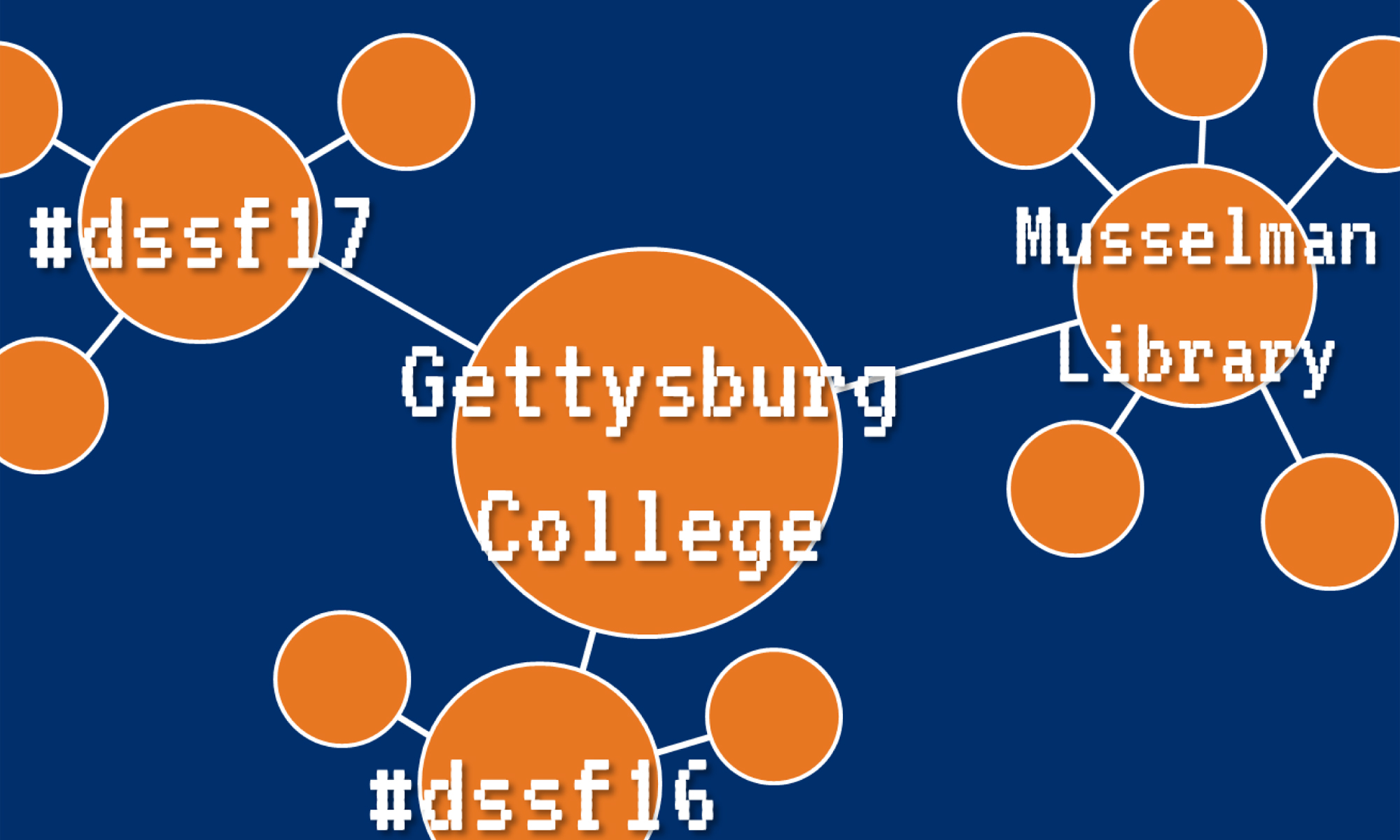Explaining what I’ve been doing this summer has been hard. People want to know what DH is and what exactly the acronym DSSF stands for. I find it difficult to explain a nebulous term like DH succinctly, so much so that nebulous seems to be the only word I have for it, and I sometimes mess up the acronym.
However, explaining this program is a necessary skill. That is why, this past week, the DSSF cohort focused on “elevator speeches” to explain our projects in a short, easily understandable way. I chose from a list of situations, and the outcomes are written below.
- You’re in line in Servo with one of your friends and they heard you did “some thing with computers” over the summer.
Yeah, the thing with computers was a Digital Scholarship Fellowship. Basically, I created a humanities project completely online. So, I had to learn how to use different platforms, websites, and a some coding along with researching to create this project. We are run through the library, so a lot of our links can be found on the library website. You can actually see all of the projects, including mine, online.
We used Gettysburg Sites to create them. Every student can make an account with this, so that’s pretty cool. We had a lot of discussions throughout the fellowship about how students as a whole could use Digital Scholarship, maybe introducing new forms of projects and allowing students to see how their scholarship can work in real world situations. I can show you all of the sites made through this program. I’m always looking for feedback. Have a nice lunch! We can talk more later.
- You’re at a job fair and the recruiter is looking over your resume; they ask you, “What’s this Digital Scholarship Summer Fellowship?
The Digital Summer Scholarship Fellowship, DSSF, is a library program that gives students a summer to work and create a Digital Scholarship project. Essentially, students learn skills to create public facing websites that are their project. It isn’t a research paper put online, but a truly digital project form.
I made a public history project that was a ‘choose your own adventure’ style audio tour of the streets of Gettysburg. As of now, I have one of the main roads, Baltimore Street, done. Because this is a digital project, I can easily add more to it. The project can grow with my research. If you’d like to see my website, I put the link on my resume. Feel free to listen to it and leave feedback, I am always looking for other perspectives to help this grow.
To make the projects, everyone in the cohort had to learn basic coding and website platforms. We worked together closely, as there are three fellows chosen every year. The program helped to increase my digital literacy, and I can now use a variety of tools to make websites and digital visuals. The program has a website you can look at to learn more about this program. I can also answer any questions you may have.
Emma Lewis
